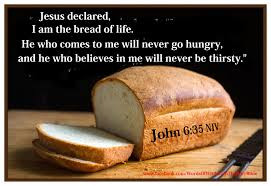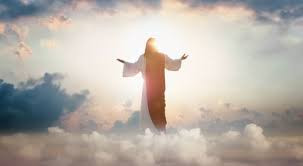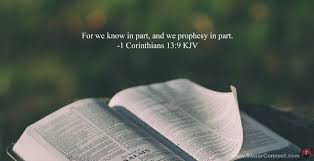
I was born and raised in both a cultural and Christian environment. As such, it was inevitable that I witnessed some African traditional offerings which were meant for specific purposes. Some traditional offerings were performed for the appeasement of some aggrieved departed souls, or to remove curses brought forth by the wronged. Others were meant just as an honour to the forefathers, or to ask the ancestors to transmit messages or requests from people to someone above, in Shona language Mumweariko (Mwari), also known as Musikavanhu. These would be performed through ceremonies of different kinds.
sundayword BY PROSPER TINGINI
If one goes through the Old Testament section of the Bible, (Leviticus 1-7), one can detect some similarities in the nature of some of our forefathers’ offerings if compared to those requested by the Lord our God, through Moses. However, what becomes evident is that while those traditions could initially have been linked directly to God, the passage of time could have made our forefathers somehow lose touch with the Lord our God, and then ended up just making direct offerings to the ancestors. An absence of recorded religious references for people who migrated into new uncivilised worlds meant original meanings or purposes to some of the offering practices got lost through word of mouth transmission. It was perceived in traditional circles that the ancestors would be the link between the living and God, but with passage of time, that link ended up just at the ancestry level. These traditional beliefs, especially on offerings, became easy targets on the advent of Christianity.
Christianity introduced Jesus Christ as the link to God instead of the ancestors, which in its nature also follows a similar intermediary pattern to that of our forefathers. To the Christians, Jesus Christ made Himself the human offering, thereby cancelling out any further need for offerings related to sins. However, I do not subscribe to the notion that we can now freely commit sins and then forget about it on the assumption that Jesus has already made atonement for the sins which we now deliberately commit, or those we are still to wilfully commit in the future. People should still acknowledge their sins, repent, ask for forgiveness of their sins and seek atonement for the sins even though we now heavily rely on Jesus’ death to obliterate the need for the sin offerings.
The Lord our God classified offerings into different categories to serve different purposes. In a previous instalment, we talked about the blood offerings and the firstling offerings. As Christians, we take Jesus Christ’s shed blood as a representation of the blood offerings, in atonement for the sin of human transgressions. At that period of time, most of the offerings were required to be made from what people possessed then, i.e. herd, flock, crops (cereals), birds (doves or pigeons). Am sure if it were during these modern times, then God would also have included money. He also mentioned some freewill and thanksgiving offerings which would be voluntary in nature, as we do today in our churches or ministries.
The Lord our God also differentiated some types of sins according to the different classes of people involved. In Leviticus 4: 3-4, He dwelt on the sins committed by the priests, saying “If anyone sins unwittingly in any of the things which the Lord has commanded not to be done, and does any one of them, if it is the priest who sins, thus bringing guilt on the people, then let him offer for the sin which he has committed a young bull without blemish to the Lord for a sin offering”. For sins committed by the whole congregation He said, “If the whole congregation unintentionally commits a sin and the thing is hidden from the eyes of the assembly, and they do any of the things which the Lord has commanded not to be done and are guilty; when the sin they have committed becomes known, the assembly shall offer a young bull for a sin offering and bring it before the tent of meeting; and the elders of the congregation shall lay their hands from the head of the bull before the Lord, and the bull shall be killed before the Lord (Leviticus 4: 13-15)”. In verses 22-24, the Lord proceeded to say, “When a ruler sins, doing unknowingly any one of all the things which the Lord his God has commanded not to be done, and is guilty, if the sin which he as committed is made known to him, he shall bring as his offering a goat, a male without blemish, and shall lay his hand upon the head of the goat, and kill it in the place where they kill the burnt offering before the Lord; it is a sin offering”.
It is clear that those who neglect to know of God’s commands will still be held accountable for any breach of those commandments, just as is practised in our modern day courts of laws or the judiciary services, who constantly declare that lack of knowledge of any given law cannot be used as an excuse for a crime committed. It is therefore prudent that everyone makes an effort to gain full knowledge of any of God’s laws and commandments. In Leviticus 4: 27-28, the Lord proceeded to say, “If anyone of the common people sins unwittingly in doing any of the things which the Lord has commanded not to be done, and is guilty, when the sin he has committed is made known to him, he shall bring for his offering a goat, a female without blemish, for his sin which he has committed”.
The Lord our God continued to speak on a host of other transgressions, whether deliberate or not, which required atonement by some form of offering. There are striking similarities in the methods of executing offerings in some cultural practices as compared to those articulated by the Lord our God. In Leviticus 3: 14-17, the Lord instructed those in charge of offerings of the following ritual; “Then he shall offer from it, as his offering for an offering by fire to the Lord, the fat that is on the entrails, and the kidneys with the fat that is on them at the loins, and the appendage of the liver which he shall take away with the kidneys. And the priest shall burn them on the altar as food offered by fire for a pleasing odour. All fat is the Lord’s. It shall be a perpetual statute throughout your generations, in all your dwelling places, that you eat neither fat nor blood”. Those cultures still practising traditional or parallel rituals should be linked to these scriptures to enable them to be in line with these directives instead of just wholesomely labelling them as pagan practices. Knowledge of the origins of those rituals is essential in order to correct any deviations from the scriptures.
- Chamisa under fire over US$120K donation
- Mavhunga puts DeMbare into Chibuku quarterfinals
- Pension funds bet on Cabora Bassa oilfields
- Councils defy govt fire tender directive
Keep Reading
Prosper Tingini compiled a book titled, God’s Constitution for Mankind – The Laws and Commandments. His contact details are 0771 260 195 or email: [email protected]











